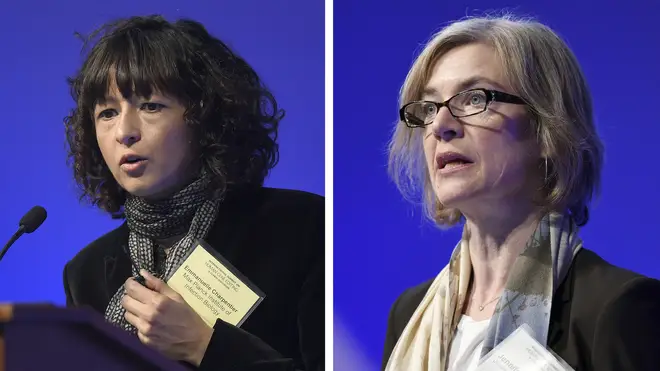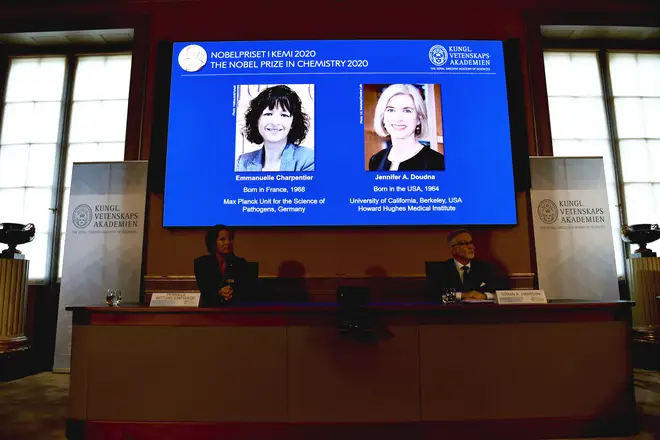
Nick Ferrari 7am - 10am
7 October 2020, 14:13

French scientist Emmanuelle Charpentier and American Jennifer A Doudna have won the Nobel Prize in chemistry for their work on genome editing.
Their work has been likened to "molecular scissors" that offer the promise of one day curing genetic diseases.
It is the first time the Nobel Prize for chemistry has been awarded to two women in the same year in its 119-year history and takes the number of women who have ever won the Nobel Prize in chemistry from five to seven.
The recipients were announced on Wednesday in Stockholm by Goran Hansson, secretary general of the Royal Swedish Academy of Sciences.
Both scientists will equally share 10 million Swedish kronor (£866,000) for their discovery.
"There is enormous power in this genetic tool, which affects us all," said Claes Gustafsson, chair of the Nobel Committee for Chemistry.
"It has not only revolutionised basic science, but also resulted in innovative crops and will lead to ground-breaking new medical treatments."

Prof Gustafsson said that as a result, any genome can now be edited "to fix genetic damage."
Prof Gustafsson cautioned that the "enormous power of this technology means we have to use it with great care" but that it "is equally clear that this is a technology, a method that will provide humankind with great opportunities."
"I was very emotional, I have to say," Prof Charpentier told reporters by phone from Berlin after hearing of the award.
Read more: Donald Trump nominated for 2021 Nobel Peace Prize
Read more: September 'world's hottest on record', scientists say
On Monday, the Nobel Committee awarded the prize for physiology and medicine to Americans Harvey J Alter and Charles M Rice and British-born scientist Michael Houghton for discovering the liver-ravaging hepatitis C virus.
Tuesday's prize for physics went to Roger Penrose of Britain, Reinhard Genzel of Germany and Andrea Ghez of the United States for their breakthroughs in understanding the mysteries of cosmic black holes.
The other prizes are for outstanding work in the fields of literature, peace and economics.

"The pill is in danger of becoming worse than the ill"
"Charpentier published her discovery in 2011. The same year, she initiated a collaboration with Jennifer Doudna, an experienced biochemist with vast knowledge of RNA," the committee reported.
"Together, they succeeded in recreating the bacteria's genetic scissors in a test tube and simplifying the scissors' molecular components so they were easier to use.
"In an epoch-making experiment, they then reprogrammed the genetic scissors. In their natural form, the scissors recognise DNA from viruses, but Charpentier and Doudna proved that they could be controlled so that they can cut any DNA molecule at a predetermined site."Where the DNA is cut it is then easy to rewrite the code of life," the Nobel committee added.
Since the scientists discovered these genetic scissors in 2012, the tool has contributed to an enormous range of research, including developing crops that can withstand mould, pests and drought.
In medicine, clinical trials of new cancer therapies are underway, and the dream of being able to "cure inherited diseases is about to come true" the committee added.